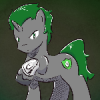Presentation of the Morals
-
Similar Content
-
- 17 replies
- 1,466 views
-
- 1 reply
- 840 views
-
- 5 comments
- 2,071 views
-
- 24 replies
- 2,847 views
-
visual art First time with drawing tablet, why did I even do this?
By Skeleton Kin,
- energy drinks
- ethics
- (and 3 more)
- 3 replies
- 926 views
-
-
Recently Browsing 0 members
- No registered users viewing this page.






Recommended Posts
Create an account or sign in to comment
You need to be a member in order to leave a comment
Create an account
Sign up for a new account in our community. It's easy!
Join the herd!Sign in
Already have an account? Sign in here.
Sign In Now